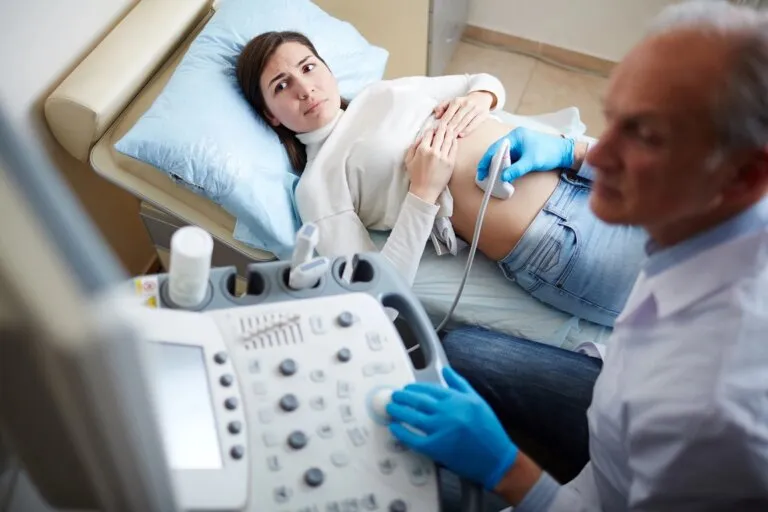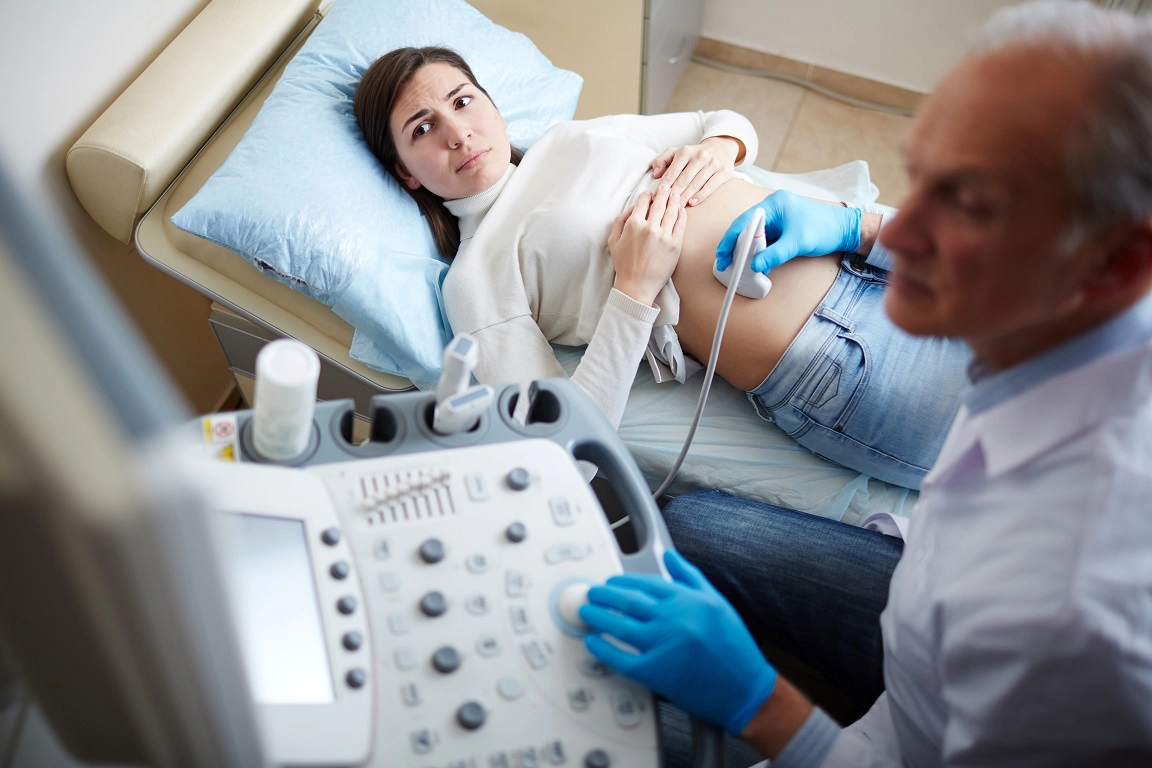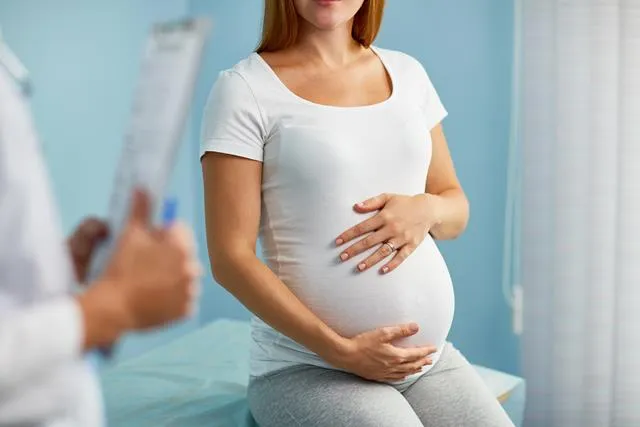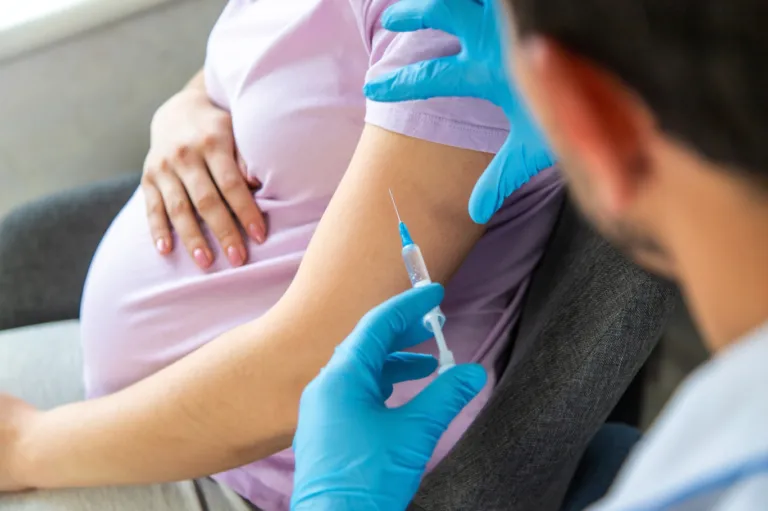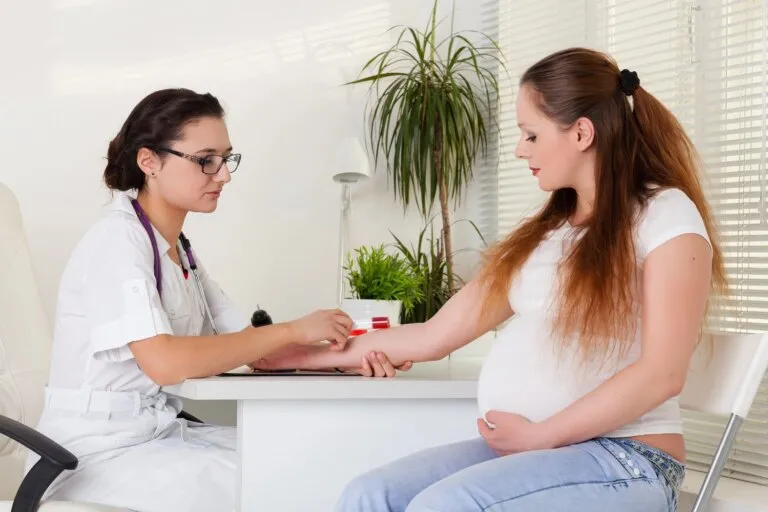Pain during pregnancy is always a cause for concern for expectant mothers. In most cases, its cause is not threatening, but there are situations in which stomach pain requires intervention or hospitalisation. Find out more about the treatment and possible causes of stomach pain during pregnancy.
What are the causes of stomach pain during pregnancy?
Stomach pain during pregnancy can have various causes. One of the most common is heartburn, which occurs in most pregnant women at some stage of pregnancy. It is due to the physiological changes that take place during pregnancy. The high concentration of progesterone relaxes the lower oesophageal sphincter, resulting in a burning sensation behind the breastbone or reflux of food. Gastrointestinal movement (peristalsis) also decreases, and the enlarging uterus presses on the stomach and exacerbates the symptoms.
Among the causes of stomach pain during pregnancy, food poisoning or nutritional errors should not go unmentioned.
Stomach pain during pregnancy can also be a symptom of serious diseases of organs such as the pancreas, gallbladder or liver. Biliary colic or acute pancreatitis often manifests itself as stomach pain and vomiting. Stomach pain during pregnancy also occurs as part of HELLP syndrome, which is a complication of high blood pressure, for example. Similar symptoms can occur with appendicitis, which changes its typical location during pregnancy.
How do you diagnose stomach pain during pregnancy?
If severe stomach pains occur during pregnancy, a diagnosis is essential. Especially if they are accompanied by symptoms such as fever, vomiting or other worrying complaints. In such a situation, investigations for acute pancreatitis, biliary colic, HELLP syndrome or kidney stones are usually carried out. This includes an ultrasound examination of the abdomen, a general urinalysis, a blood count, liver parameters such as AST, ALT, GGTP, bile acids or bilirubin. In addition, the creatinine concentration, blood pressure values and CRP (inflammation parameter) are checked. Laboratory and imaging examinations help to find the cause of the symptoms and initiate the appropriate treatment.
How is stomach pain treated during pregnancy?
If the stomach pain is caused by food poisoning or indigestion, an easily digestible diet and adequate fluid intake are recommended. In some cases, hospitalisation is required, but fortunately most symptoms pass without hospitalisation. If an expectant mother is struggling with heartburn, neutralising treatment with proton pump inhibitors is recommended. However, these should not be used alone during pregnancy. Acute pancreatitis (inflammation of the pancreas) or an attack of biliary or renal colic requires hospitalisation. A strict diet or antibiotic therapy may be necessary. Treatment depends on the individual case and the clinical condition of the expectant mother. In HELLP syndrome, parameters such as ALT, AST, creatinine, platelets and blood pressure are monitored. It may be necessary to terminate the pregnancy more quickly.



